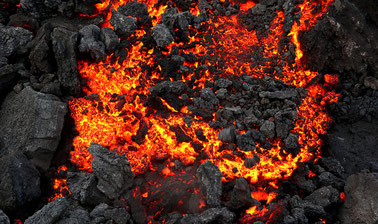
UCx: Volcanology field science and society
by University of Canterbury
Introduction to Field Volcanology and Hazards
Course Description
Welcome to "Introduction to Field Volcanology and Hazards," an exciting and immersive course that will take you on a captivating journey into the world of volcanoes and their impact on our planet. This course is the first of two in the "Field Volcanology and Hazards" Certificate program, offering a comprehensive introduction to the science of volcanology and the essential skills required to become a field volcanologist.
Throughout this course, you'll explore the fascinating realm of volcanoes through a variety of engaging methods, including animation experiments, interviews, and interactive 360° videos and 3D landscapes. You'll delve into the cultural perspectives surrounding volcanoes, with a particular focus on examples from Aotearoa New Zealand and the incorporation of Mātauranga Māori (Māori knowledge).
What Students Will Learn
- The fundamental science behind volcanic eruptions
- Essential skills of a field volcanologist
- Different volcano types and their associated hazards
- Cultural perspectives on volcanoes, including Māori knowledge
- Field trip planning and hazard mapping techniques
- Effective communication of volcanic processes to diverse audiences
- Rock and landscape analysis using cutting-edge 360° video and 3D technology
Pre-requisites
This is an introductory-level course with no specific prerequisites. However, a general interest in earth sciences, geology, or natural hazards would be beneficial. Basic computer skills for navigating online content and interacting with 360° videos and 3D landscapes will be helpful.
Course Content
- The science of volcanic eruptions and processes
- Cultural perspectives on volcanoes, with a focus on Aotearoa New Zealand
- Different types of volcanoes and their characteristics
- Field trip planning and safety considerations
- Hazard mapping and risk assessment techniques
- Rock and landscape analysis using innovative technology
- Effective communication of volcanic hazards to various audiences
- Application of Mātauranga Māori in understanding volcanic processes
- Case studies of volcanic activity in Aotearoa New Zealand
Who This Course Is For
- Students interested in pursuing a career in volcanology or earth sciences
- Professionals working in fields related to natural hazards or disaster management
- Environmental enthusiasts eager to understand volcanic processes
- Individuals living in volcanically active regions seeking to enhance their knowledge
- Anyone with a curiosity about the dynamic forces shaping our planet
Real-World Applications
- Assessing and mitigating volcanic hazards in at-risk communities
- Contributing to emergency response planning in volcanically active regions
- Enhancing public awareness and education about volcanic processes and risks
- Applying cultural sensitivity in scientific research and communication
- Utilizing advanced technologies for geological analysis and mapping
- Improving decision-making processes related to land use in volcanic areas
- Conducting field research and data collection in volcanic landscapes
Tentative Syllabus
- Introduction to volcanology and cultural perspectives
- The science of volcanic eruptions
- Types of volcanoes and their characteristics
- Field skills and safety in volcanic environments
- Hazard mapping and risk assessment
- Rock and landscape analysis using 360° videos and 3D technology
- Communication strategies for diverse audiences
- Case studies of volcanic activity in Aotearoa New Zealand
- Integration of Mātauranga Māori in volcanic studies
- Final project or assessment









